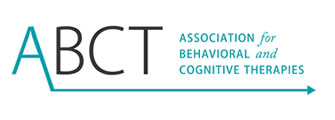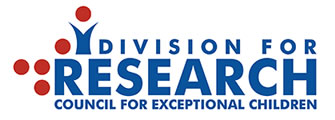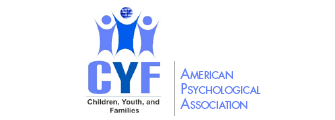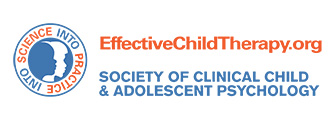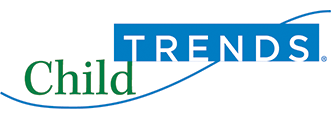
When taking any medication, it is important to follow a doctor’s instructions and take the right amount of medication at the right time. Taking medication correctly is one of the best ways to help fight an illness or manage a medical condition. Many people have trouble with taking medication correctly, and children and teens are most at-risk for missing doses of their medication. Parents play a critical role in helping children, and even teens, take medication. Luckily, there are many strategies to make it easier for you and your child!
The first step is to find out if your child/teen is missing their medication, and – if so – why. There are many reasons why children don’t take their medication- whether by accident or on purpose. Often, the easiest way to find out is to have a calm conversation with them about what makes it difficult for them.
When children miss medication on purpose
Reasons children and teens commonly give for skipping their medication on purpose include:
- Side-effects like feeling sick, uncomfortable, or weird after taking their medicine.
- The taste of the medicine is “gross,” bitter, or unpleasant.
- Difficulty swallowing, or fear of choking on pills or tablets.
- Being tired of living with a medical condition and having to take medicine.
- Taking medication reminds them that they are sick and causes them to be sad or worried.
- Thinking that they do not need to take medicine because they don’t believe they are sick.
If your child or teen is skipping their medication because of side-effects or an unpleasant taste, speak to your doctor about trying things that might help. Often, there are simple fixes to these problems, like taking medicine with food, mixing it with something to make the taste less noticeable, or taking it in a different form (e.g., liquid rather than pill). Other times, adjusting how much medicine is taken, when it is taken, or even trying a new medication can lead to better results with less uncomfortable effects.
If your child or teen is having difficulty swallowing or fears they will choke, encourage them to:
- Sit up and practice swallowing with their head tilted back at a 45-degree angle.
- Practice swallowing small candies (e.g., sprinkles), gradually getting bigger to match the size of their medicine.
As a parent, if you can stay enthusiastic and provide incentives or rewards for the practice, children will be more motivated to keep trying. If it is still difficult for your child/teen to swallow pills, ask for help from the doctor’s office.
If your child/teen is avoiding taking their medication because they have a significant medical condition, and thinking about their illness makes them sad, angry, or worried, they would likely benefit from talking with a therapist. Therapy can help youth feel better about living with their illness and promote adjustment to, and coping with, their condition. Therapy can also help children/teens understand the importance of taking their medication, improve their desire to follow medical advice, and take their medication more regularly. If your child/teen does not understand their medical condition or why they take medicine, ask your doctor to explain it to them in a way that is at their developmental level without being too scary.
When children miss medication accidentally
Many times, children and teens miss their medication accidentally – either because they are forgetful or because they do not have a good reminder system. Simple ways to help your child/teen remember to take their medication include:
- Pick up a pill box at your local grocery store or pharmacy.
- Set alarms for each dose on both your phone and your child/teen’s phone or tablet. Use the snooze function so that the phone will keep reminding you, only turning off the alarm when your child/teen has actually swallowed the medicine.
- Use smart phone apps, like MyMedSchedule (link: https://blogs.cdc.gov/safehealthcare/keep-your-kids-safe-put-medicines-and-supplements-including-gummies-up-and-away/) or Dosecast (link: https://montunosoftware.com/about ), to provide easy reminders in the form of texts or alarms.
- Keep your child/teen’s medication bottle or pill box out somewhere where it is easily seen and can’t be missed, such as on the kitchen counter or on their nightstand.
- Keep a glass of water near your child/teen’s medication so that they have everything they need ready to go.
- Combine taking medication with another daily habit that already happens each day (like brushing teeth) at the time medication needs to be taken.
As a parent, you should check to see that your child/teen takes their medication regularly and provide reminders in a calm, positive manner. Ask your child/teen about the best way to give them reminders (like you checking the pill box to see if they have taken their medication before reminding them). Sometimes it may help to use a sticker chart or provide other rewards to motivate younger kids. When your child/teen will need to take medicine for a prolonged period of time, it is especially important to provide support and rewards for the first month or two as your child/teen is forming a regular habit to take their medicine. Once your child/teen is more consistent and used to the routine, the behavior will become more automatic and easier to remember.
Lastly, your child/teen can’t take their medication if it isn’t there when they need it!
- Make sure you don’t run out of medication by refilling prescriptions on time. In some cases it may be possible to have medication on an auto-refill with your pharmacy or delivered to your home on a regular basis. See what your insurance plan and pharmacy can do to make it easier for you.
- Make a routine of filling the pill box on the same day each week, like Sunday.
- Talk to your child/teen’s doctor and ask them to provide enough medication so that you can keep extra pills at home and school as needed. If your child/teen spends time at two homes, make sure they have all medication they need at both, and keep the routine as similar as possible at both homes.
- Plan ahead for trips and vacations and bring medication with you when there are changes in routine or schedule.
If you are having trouble paying for your child’s medication, ask your doctor for information on prescription discount programs or resources that can help you afford the cost.
Proper citation link for this blog post:Kelly, S. L., & Dickson, D. M. (April 15, 2020). Helping Your Child or Teen Take Medicine. https://infoaboutkids.org/blog/helping-your-child-or-teen-take-medicine/

